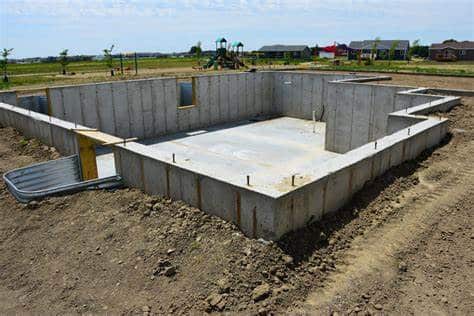Why Concrete Withstands Harsh Weather Conditions In Imperial Beach?

- Concrete is renowned for its exceptional strength and durability. Its composition, which typically includes a mixture of cement, water, and aggregates like sand and gravel, forms a robust matrix. When this mixture cures and hardens, it creates a solid structure that can resist the forces of nature. Concrete’s high compressive strength allows it to bear heavy loads without cracking or crumbling, making it ideal for everything from bridges to buildings.
- Concrete has low water absorption properties due to its dense composition. When concrete is properly mixed and cured, it forms a barrier that limits the penetration of water. This characteristic is particularly crucial in regions with heavy rainfall or frequent freeze-thaw cycles. By minimizing water intrusion, concrete prevents the expansion and contraction of ice within its pores, reducing the risk of cracks and structural damage.
- Concrete’s chemical composition gives it impressive resistance to chemical attacks, including those caused by weather-related elements. Acid rain, for example, can be harmful to many building materials, but concrete is highly resistant to its corrosive effects. Similarly, the alkaline nature of concrete helps protect steel reinforcement from rust and corrosion, extending the lifespan of concrete structures in harsh environments.
- Concrete exhibits excellent thermal stability, which means it can withstand extreme temperature variations. Whether it’s exposed to intense heat or freezing cold, concrete maintains its structural integrity. This property makes it suitable for construction in regions with diverse climates. Additionally, concrete’s ability to absorb and release heat slowly helps regulate indoor temperatures, reducing energy consumption and making it an eco-friendly choice.
- Concrete offers design flexibility, allowing engineers and architects to create structures that can withstand specific weather conditions. By adjusting the mix design, reinforcement, and surface treatments, they can tailor concrete to meet the demands of a particular environment. For instance, in hurricane-prone areas, engineers can design buildings with reinforced concrete walls and roofs to withstand strong winds and flying debris. This adaptability makes concrete a versatile choice for various climate challenges.
FAQs
Can Extreme Cold Weather Cause Concrete To Crack?
While extreme cold weather can potentially lead to concrete cracking, proper construction practices and concrete mix designs can minimize this risk. Using air-entrained concrete and ensuring adequate curing can help prevent cracks due to freezing temperatures.
Does Concrete Require Special Maintenance To Endure Harsh Weather Conditions?
Concrete structures typically require minimal maintenance to withstand harsh weather conditions. Regular inspections for signs of damage, such as cracks or spalling, and addressing them promptly can help prolong the life of concrete structures.
Can Concrete Be Used In Coastal Areas Where It’s Exposed To Saltwater And High Humidity?
Yes, concrete is suitable for coastal areas, but it’s essential to use the right mix design and protective coatings to mitigate the corrosive effects of saltwater and high humidity. Proper maintenance is also crucial in such environments to ensure long-lasting performance.
Conclusion
Concrete’s ability to withstand harsh weather conditions is a testament to its durability and adaptability. Its inherent strength, low water absorption, chemical resistance, thermal stability, and design flexibility make it an excellent choice for construction projects in various climates. By understanding these qualities and implementing proper construction and maintenance practices, we can ensure that concrete structures remain resilient and stand the test of time, even in the face of nature’s harshest challenges. For more information, contact Concrete Contractor Imperial Beach at (619) 414-1918.